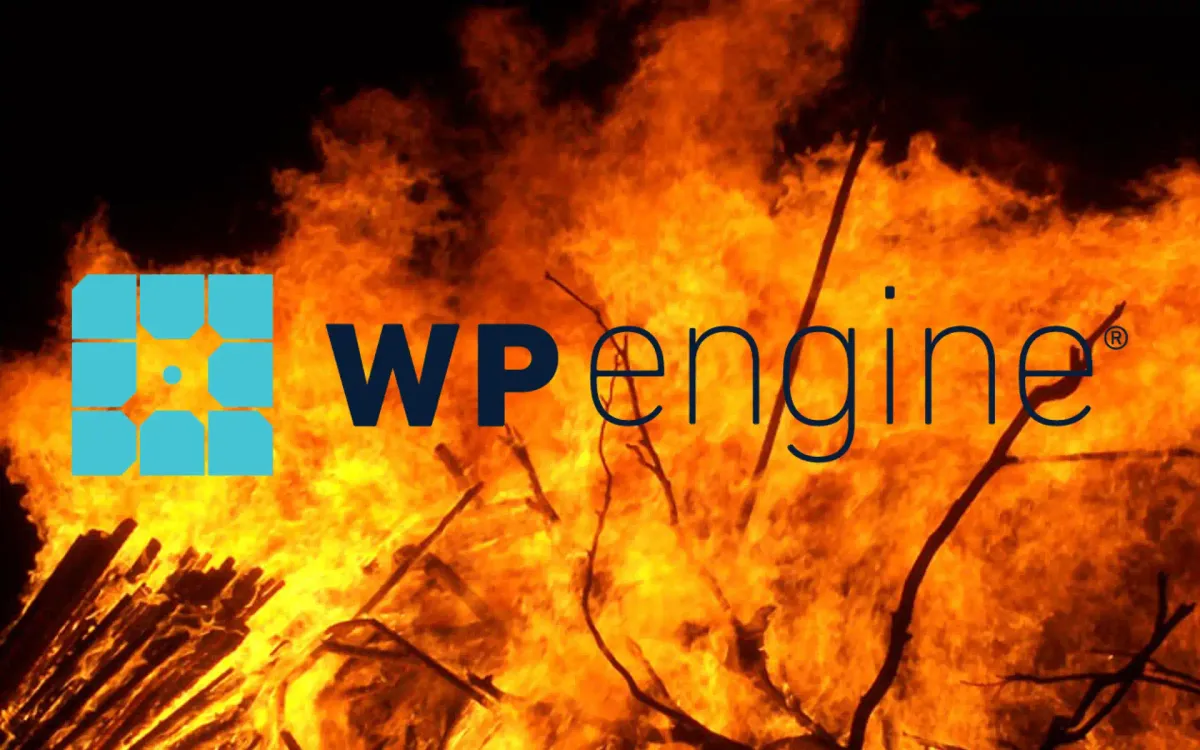
On September 25, 2024, Matt Mullenweg, co-founder of WordPress, announced that WP Engine, a major WordPress hosting provider, has been banned from accessing WordPress.org resources. This decision comes amid an escalating dispute between Automattic (the company behind WordPress.com) and WP Engine, which has now resulted in legal action from both parties.
The conflict began to unfold publicly on September 20, 2024, during WordCamp US in Portland, Oregon. In his keynote address, Mullenweg criticized WP Engine for allegedly not contributing enough to the WordPress open-source project despite generating significant revenue from the platform. He claimed that WP Engine was "hollowing out" the open-source community and suggested that their practices were harming companies like Automattic, which invests heavily in WordPress development.
According to Mullenweg, WP Engine generates approximately $450 million per year from WordPress while only contributing about $100,000 worth of development time annually. This disparity, he argued, creates an unfair competitive landscape for companies that invest more heavily in the project's development.
The situation escalated further when WP Engine took legal action. On September 23, 2024, Quinn Emanuel, a law firm representing WP Engine, sent a cease-and-desist letter to Automattic. This letter demanded that Automattic and Mullenweg immediately cease making what WP Engine claims are false factual statements about their company.
The letter from WP Engine's legal team also revealed previously undisclosed negotiations between the two companies. According to the document, Automattic CFO Mark Davies had told a WP Engine board member that Automattic would "go to war" if WP Engine did not agree to pay a significant percentage of its gross revenues to Automattic, ostensibly for a "license" to use certain trademarks like WordPress.
In response to WP Engine's cease-and-desist letter, Automattic took legal action of its own. On the same day, September 23, 2024, Automattic sent a cease-and-desist letter to WP Engine. The letter, sent by James R. Davis II of Perkins Coie LLP, demanded that WP Engine immediately stop all unauthorized use of Automattic's trademarks, including WordPress and WooCommerce. Automattic claimed ownership of all intellectual property rights globally for the WooCommerce and Woo trademarks, as well as exclusive commercial rights from the WordPress Foundation to use, enforce, and sublicense the WordPress trademark.
Key Facts
- WordCamp US 2024 took place from September 19-21 in Portland, Oregon.
- Matt Mullenweg delivered his critical keynote on September 21, 2024.
- WP Engine was a "Super Admin" sponsor of WordCamp US, contributing $75,000.
- WP Engine sent a cease-and-desist letter to Automattic on September 23, 2024.
- Automattic responded with its own cease-and-desist letter on the same day.
- Mullenweg announced WP Engine's ban from WordPress.org on September 25, 2024.
- WordPress powers over 40% of websites globally.
- WP Engine allegedly generates around $450 million annually from WordPress-related services.
- Automattic claims WP Engine's unauthorized use of trademarks has led to over $32 million in lost licensing revenue.

